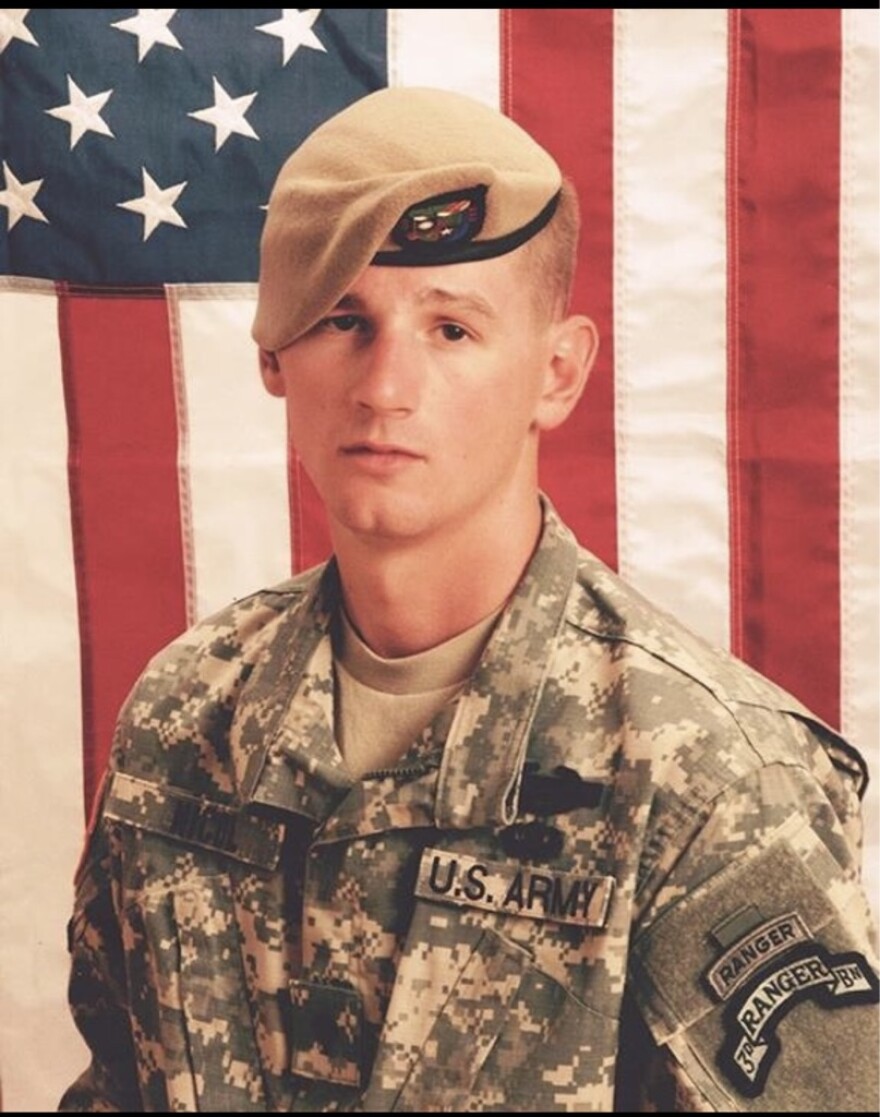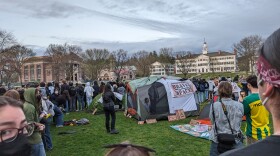Lauren Zabierek is the executive director of the Cyber Project at the Harvard Kennedy School’s Belfer Center, where the majority of her work centers on security issues in cyber and tech.
She also grew up in New Hampshire, and is both a veteran and a Gold Star Sister. Her brother, Sgt. Andrew C. Nicol, died in 2010 in Afghanistan.
Recently, Zabierek's personal and professional worlds collided when she learned that her brother’s name was invoked, without her family’s consent, as part of the recent campaign to eliminate ballot-counting machines in New Hampshire.
In the wake of the 2020 election, activists questioning the validity of those results and the integrity of New Hampshire’s voting systems at large have been trying to ban the use of ballot-counting machines — despite assurances from election officials and security experts that the state's elections are secure. Earlier this year, a local newspaper article about that movement quoted an activist supporting the efforts to ban ballot-counting machines, who said Nicol’s sacrifice drove him to take action.
“A friend actually sent me the article and basically said, ‘I’m so sorry to send this to you but I wanted to let you know your brother is being named in order to further this agenda,’” Zabierek said.
While Zabierek said she appreciates people continuing to think of her brother’s legacy, her family was alarmed to see his name used in connection with a political movement motivated by conspiracy theories on such a public platform. She said she submitted a letter to the editor voicing her concerns, but it wasn’t published.
“It's infuriating to me,” Zabierek said. “Especially because he died in 2010. It’s 12 years later. We don’t know what he would have said or what he would have thought about these issues. To put the words of somebody else in my brother’s mouth when he can’t defend himself or explain himself, I think, is beyond the pale.”
This isn’t the first time someone has invoked her brother’s name in an attempt to further a political agenda. A few months into the coronavirus pandemic, a Florida congressman wrote an op-ed for Fox News outlining what he believed a number of fallen veterans, including Nicol, would tell the country about how to respond.
Again, Zabierek said she was troubled to learn that her brother’s name was being used “to spread [disinformation about] safe actions amid the COVID-19 pandemic.”
“If it’s a congressman, right, all the way down to a local newspaper, think twice about doing something like that,” she said. “Think about, is this serving my purpose? Or is this serving that person’s memory?”
As part of NHPR’s In Our Backyard series, focusing on the state of democracy and dialogue across New Hampshire, Morning Edition host Rick Ganley talked with Zabierek about how misinformation and weaponizing grief is shaping debates on local issues.
Transcript
Editor’s note: This transcript has been edited lightly for length and clarity.
Rick Ganley: As a veteran and someone who's lost a family member, what do you wish that activists and politicians invoking the names of military men and women who have been killed in action understood about the impact of that to family and friends?
Lauren Zabierek: What they're doing is trying to legitimize an agenda or a political issue by using the name of a fallen hero, thinking that perhaps that person would agree with them, or even, say, conflating the hero with that agenda simply because they may have known him or they may assume something about him because they were in the military or something. And that is really wrong, right? Because, again, that person can no longer speak up for themselves unless someone's explicitly said, please use my name and my memory to further a political agenda. Because these people gave their lives for our country, and especially when people are using them in a way to continue to divide the country to further these ideas that are very divisive, it's extremely hurtful.

Rick Ganley: While the push to eliminate ballot counting machines in New Hampshire, that campaign in which your brother's name was invoked recently, has stalled out at the State House and in local elections, the push is frankly, it's built on conspiracy theories, undermining the legitimacy of the 2020 presidential election and other misinformation about the voting process. As someone who works on cyber security issues, how do you address legitimate security concerns without giving too much oxygen to those harmful theories about something like electoral fraud?
Lauren Zabierek: You know, we have to be able to rely on some technology that make our lives easier, right? Because we don't want to have several days turn into several weeks on end where we're still hand counting the ballots. And former cybersecurity and infrastructure security director Chris Krebs, who is now a senior fellow here at the Belfer Center at the Cyber Project, he said the 2020 elections were the most secure in history. Now, of course, if we look back at 2016, there was this sort of accountability saying we need to secure these systems, right? So no actual electoral or election systems were breached, but certainly voter databases were. And so after that, I think there was this movement to say, okay, we need to look at what happened. We need to fix those vulnerabilities. We need to strengthen those systems. We need to make sure that the election officials who work very hard, who take the rules very seriously, have the tools that they need to ensure that these elections are secure and they're free and they're fair. And since that time, so much effort and money has gone towards securing those election systems. (Note: After this interview, Zabierek followed up with NHPR to add that, in her view, some people who refuse to accept that the 2020 election was secure are being “aided and abetted by leaders to think there was some conspiracy or fraud, and there was not.” She said ballot-counting machines can sometimes malfunction, "and that's why having paper audit trails are so important.")
Rick Ganley: Well, how concerned are you about threats on the local level, especially when it does come to misinformation campaigns?
Lauren Zabierek: There are so many people, and for good reason, that are susceptible to mis- and disinformation. And so I think if we're not taking the time to invest in education and digital literacy, right, understanding how things work on the Internet and what these threats look like, then I think we're going to have some problems for a long time. But I think if states and towns and things like that can actually invest in that education and teach kids from a very young age about the technology and about information, about things that we're dealing with online, then I do think things will get better. But until that happens, I am quite worried about that.
Rick Ganley: Well, I'm wondering if you have some actual tips that you can offer people who are looking to get more involved in local politics, how they can get involved and avoid getting caught up in those misinformation campaigns, and how they can avoid exploiting stories of individuals like your brother in a way that could be harmful?
Lauren Zabierek: To understand where information comes from and what outlets are more responsible in reporting that information, I think, is very important. Although I think from what I've seen, there are a lot of people who just sort of think, well, if this is wrong or if this is misleading, then everything must be misleading. And I think that is inaccurate, because it just breeds this distrust in our institutions and our traditional media outlets. And again, I think it's always worth looking at things with a dose of skepticism. But again, knowing how things are vetted and how things are accountable to people, I think is truly important.










